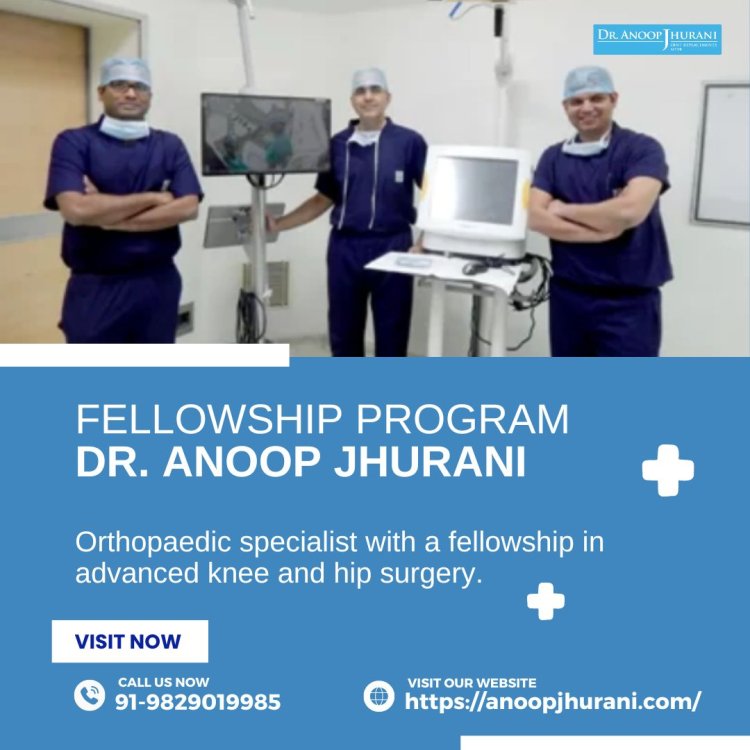Fellowship Program in Robotic and Computer-Assisted Joint Surgery
Dr. Anoop Jhurani has a four-week fellowship program available. The fellow will learn the finer points of robotic surgery.
Share this Post to earn Money ( Upto ₹100 per 1000 Views )

Are you an orthopedic surgeon looking to expand your knowledge and expertise in joint replacement surgery? Dr. Anoop Jhurani's fellowship program offers an unparalleled opportunity to gain hands-on experience and learn advanced Robotic and Computer-Assisted Surgery. Over 4 weeks, fellows will be trained in partial, total knee, hip, and revision surgeries. With the increasing role of technology in orthopedic surgery, this fellowship provides the cutting-edge skills necessary to succeed in modern arthroplasty.
What You Will Learn
The fellowship is structured to provide a comprehensive and evidence-based approach to joint replacement. Fellows will receive detailed training in the operating room and outpatient clinic, gaining insight into pre-operative planning, implant selection, and post-operative care. Additionally, fellows will learn the following:
- Principles of Robotic and Computer-Assisted Surgery
- Systematic approaches to treating arthritic patients
- A variety of surgical methods, focusing on patient-specific outcomes
- Balancing evidence-based techniques with patient-centered care
With Dr. Jhurani's mentorship, fellows will build confidence and expertise in performing surgeries with robotic precision and accuracy, improving patient outcomes.
Tips for Fast Recovery After Knee Arthroplasty Surgery
As a fellow, you will also gain insight into post-operative care, a crucial aspect of joint replacement. Helping patients recover quickly and comfortably is as important as the surgery itself. Here are some key tips for fast recovery:
1. Early Use of the Knee: Patients must begin using their artificial knee as soon as possible after surgery. Under the supervision of a physical therapist, patients should stand up and use assistive devices such as walkers or crutches to ensure they get accustomed to their new knee. Early movement reduces stiffness and promotes healing.
2. Increase Physical Activity: Gradual increases in physical activity, particularly walking, are essential for recovery. Patients should follow a daily exercise plan to strengthen their knees and improve mobility. As the knee becomes stronger, they can progressively increase the duration and intensity of their walks.
3. Longer Walks Without Support: Over time, patients can start walking without support. Following the therapist’s guidelines ensures that daily tasks become easier, reducing the need for pain medications and helping patients regain their independence.
4. Increase Knee Strength: After approximately six weeks, patients should see improvements in their ability to perform household chores and daily activities. With the doctor or therapist's approval, patients may even resume driving and returning to work.
Final Thoughts
This fellowship offers a holistic training experience, combining surgical expertise with a strong emphasis on patient-centered care and rapid recovery. Fellows will not only learn advanced surgical techniques but will also acquire the skills to manage post-operative care effectively. By the end of the fellowship, participants will be confident in performing robotic and computer-assisted surgeries and developing comprehensive treatment plans for patients suffering from joint disorders.
Join Dr. Anoop Jhurani’s fellowship program to elevate your career in orthopedic surgery and contribute to the advancement of patient care through the latest technologies and techniques in joint replacement surgery.

















